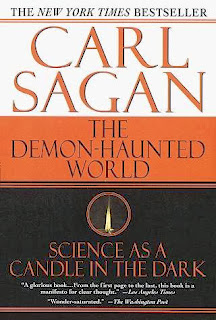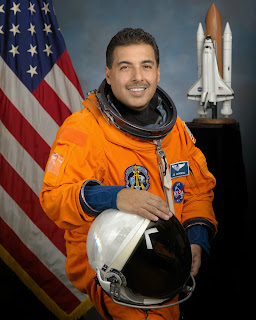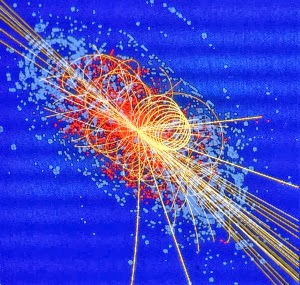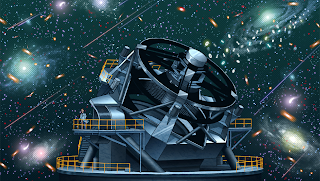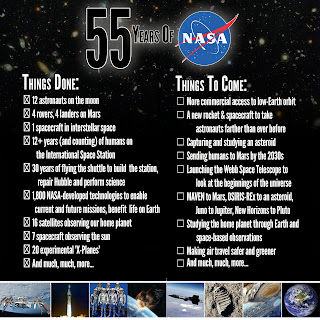 © 2 October 2013, Reginald L. Goodwin
© 2 October 2013, Reginald L. Goodwin
Healthcare.gov had 1M hits 1 October 2013, before 7 AM. It is based on the state health care option Mitt Romney gave Massachusetts in '06, which is based on the public mandate championed by the conservative Heritage Foundation AND Newt Gingrich as a counter to President and Hillary Clinton's plan. 97% of Massachusetts is covered; 84% are satisfied 7 years later. (You can also register to vote, which may explain the fierce opposition to it!) Mitt and the GOP were "for it" before they were against it. So, this is opposition to THEIR idea: isn't this a form of self-immolation?
“The chickens have come home to roost”: made famous by Malcolm X, it has become a metaphor for Karma; the biblical reaping what one has sown.
It is ironic now Senator John McCain is now calling for civility after introducing us to the queen of incivility in his “game changing” maverick moment on the campaign trail (“palling around with terrorists” seems so tame to “shucking and jiving” now). “Mamma Grizzly” is de facto mother of the Tea Party, and from its aging placenta emerged Ted Cruz. It is ironic Former House Speaker Newton Gingrich suggested that a government shutdown would not work this time (as it didn’t the last time); Representative Peter King called Senator Ted Cruz of Texas “a fraud” and Representative Devin Nunes compared this nakedly government-by-terrorism-tactic “lemmings with suicide vests.”
But, that’s what happens when one goes to apocalyptic extremes, isn’t it? 9-11 was a harsh and evil day; along with the financial crisis of 2008 prophecies abounded on “the end of days,” and many prophets profited from the same utterance, an absence and deafening silence holding avarice accountable for the global crash in ’08. The rise of Occupy Wall Street – and the emptying of pews by the young – stark evidence that lack of the same zeal that once threw money changers out of the temple has turned up and coming replacement worshippers off.
It has also made many Americans skeptical of the process of government by imperfection – humans with beliefs/ideals coming to compromise and consensus to make things run. Congress’ approval rating is at an all-time low, so in protest of that August body; many of our fellow Americans in gerrymandered, quite safe-to-be-republican districts have sent a small contingency to Capitol Hill that do not believe in government or governing…or science…or election results…or reality.
Absolutism has taken control of half of the country, a “good versus evil”; “us against them” “the forces of God against the forces of the devil.” As previously tongue-in-cheek with 43rd President Bush, 44 is labeled “the Antichrist” if you can stomach trolling vulgar Internet sites. Every president one doesn’t agree with since Clinton is compared to Hitler and in league with the Illuminati, an 18th century, long dead cult by Adam Weishaupt. That requires one only to cower and fear; not think or rationally address the conspiracies blatantly broadcast in primetime: voter suppression, outsourcing, education, the war-on-drugs, and for-profit-prisons all made lucrative commodities with symbols on the NYSE. That list is a beast that seeks to destroy whom it may devour for the enrichment of a select few.
The tea party would label themselves as “Christian conservatives,” but a more apt description is authoritarian anarchists, more in common with The Dark Knight’s Joker: “Some men aren't looking for anything logical, like money. They can't be bought, bullied, reasoned or negotiated with. Some men just want to watch the world burn.” These are Ayn Rand individualists with not an ounce of charity for “the least of these” other than their wealthy benefactors; apocalyptic dominion Stepford children of “Mamma Grizzly,” Michelle “crazy eyes” Bachmann, and “Dr. Strangelove (How I Learned to Stop Worrying and Love the Bomb)”; “my way or the highway”; “give me what I want, or I’ll burn the house/country/planet down!” a complete 180 degree dichotomy from “peace on earth; good will towards all men.” Speaking of which: he was threat to order in the Roman Empire, executed for sedition; addressed the leading lawmakers (scribes) and status quo religious leaders (Pharisees) quite affectionately:
“But woe to you, scribes and Pharisees, hypocrites! For you shut up the kingdom of heaven against men; for you neither go in [yourselves], nor do you allow those who are entering to go in. Woe to you, scribes and Pharisees, hypocrites! For you devour widows' houses, and for a pretense make long prayers. Therefore you will receive greater condemnation. Woe to you, scribes and Pharisees, hypocrites! For you travel land and sea to win one proselyte, and when he is won, you make him twice as much a son of hell as yourselves. Woe to you, blind guides, who say, 'Whoever swears by the temple, it is nothing; but whoever swears by the gold of the temple, he is obliged [to perform it]. Fools and blind! For which is greater, the gold or the temple that sanctifies the gold?” (Matthew 23:13 – 17) For that, and other feats of verbal Ju-jitsu, he life was routinely threatened; eventually executed by crucifixion.
Authoritarian anarchists are the white-washed sepulchers of his mention; Paul’s “sounding brass and tinkling symbol”; the demonic posing as angels of light; death masquerading as life. A hiker in Idaho cannot be found: park rangers are among the 800,000 government workers, NASA and the Curiosity Rover furloughed, and her blood if she expires of exposure is on the hands of lemmings in suicide vests. We will spend 40 – 80 million dollars a day of taxpayer dollars: republicans, democrats, tea party dollars! These authoritarian anarchists are guilty of pimping God in canned and practiced call-and-response sermons like a cheap prostitute, feigned Oscar-winning performance Glossolalia, kneeling in front of the Capitol devouring widows while making showy prayers; refusing to legislate and proud they are not: for 126 days of “work”; a six-figure government check and free health care!
A book by Chris Matthews called “Tip and the Gipper” reflects back to (now in comparison) halcyon days when Speaker Tip O’Neal and President Reagan resembled Warner Brother’s cartoon “Sam and Ralph” (sheepdog and wolf). They argued, they disagreed, they fought like cats and dogs (or, sheepdog and wolf)…then after six, like Sam and Ralph drank like Irishmen. When Reagan was shot, O'Neal knelt and recited the 23rd Psalm by his bedside. It wasn’t perfect by any means: it was government by imperfection; government by agreed consensus and concession; government that worked.
We now have government by Twitter, with the attention span of 140 characters. We now have government and journalism by social media, such that “truth” is judged by how many people say the same thing over and over again; not its source (Goebbels would be proud). We now have government by “reality show” where none of the contestants are trained actor/performers nor need to be (just flamboyant and outrageous enough to keep our fleeting attention span), or in this case, no grounding in philosophy, science, literature, and history to inform the positions they wish to uphold and defend. “Stick to principle”; purity tests; primary challenges within your own caucus. We now have government by borrowed rhythm, sound bites; sample songs to spit a line over; claiming a legacy of Reagan by dissecting bits and pieces of him that their own purity tests he’d fail; a government that resembles a new joint from NOLA by “Wheezy,” tattooed terrorists hopped up on "purple drank" and Wild Turkey before flushing the country Sunday – deluded, apocalyptic, science-denying “principled” lemmings in suicide vests – with no “plan B.”
Here is mine: #2014TheDayofReckoning. Vote!
This time, vote for your own self-interests and not against it, or against the country’s self-interest and continued viability. Hire people that WANT to govern.

